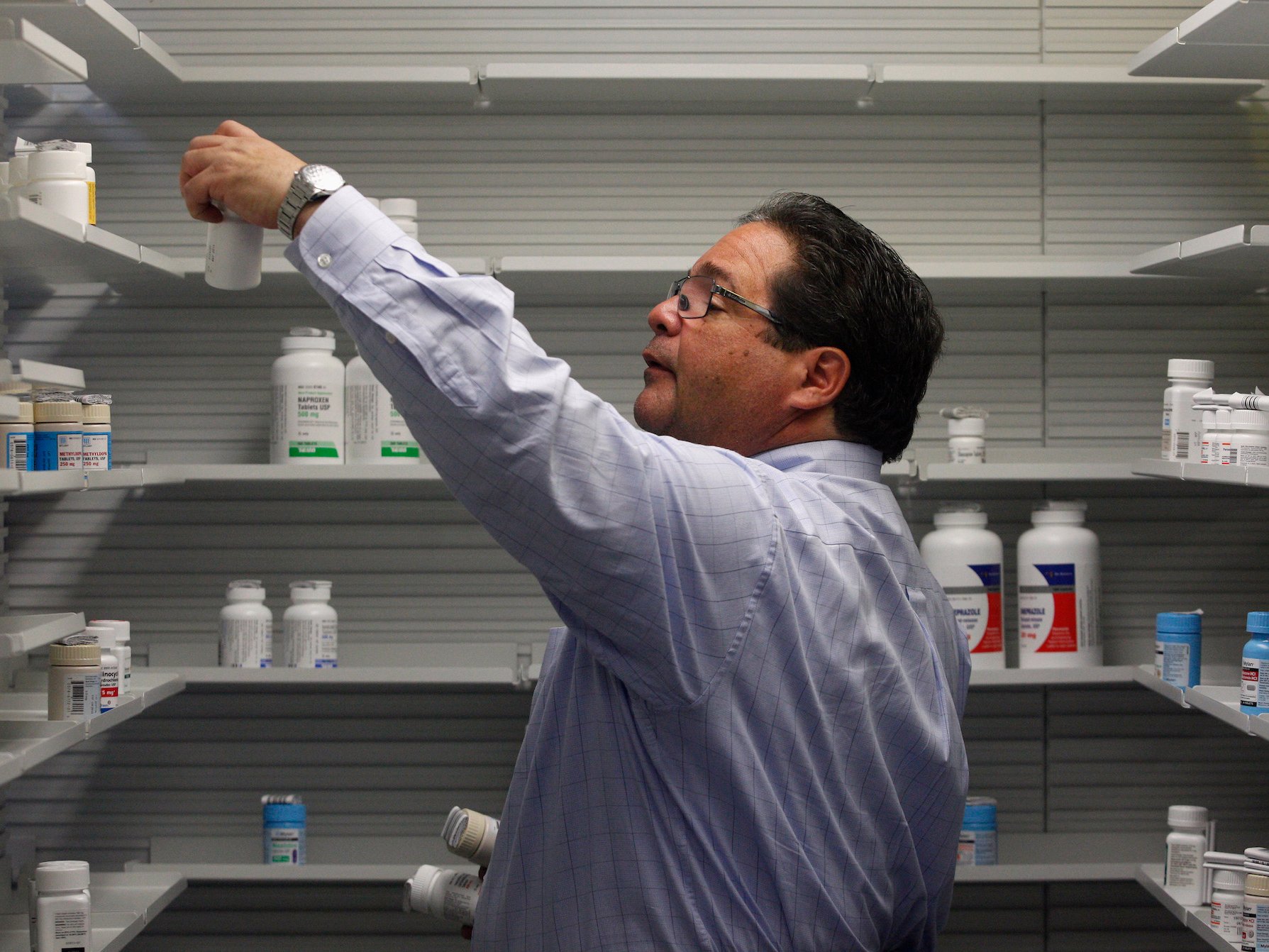 Brendan McDermid/Reuters
Brendan McDermid/Reuters
- Short sellers in major drugstore chains have earned $874 million this year, according to the financial-analytics firm S3 Partners.
- They earned $100 million late Thursday as drugstore stocks fell on a report that retail-pharmacy giant CVS may buy insurer Aetna.
- The $66 billion deal would respond to the threat from Amazon, which was reportedly granted wholesale pharmacy licenses in at least 12 states on Thursday.
CVS is reportedly considering buying Aetna for over $66 billion, in a deal that would address the looming threat from Amazon.
Through a deal, the retail-pharmacy giant would increase the number of members in its pharmacy-benefit management business and strengthen its negotiating position with drugmakers, The Wall Street Journal reported.
Shortly before this news on Thursday, the St. Louis Dispatch reported that Amazon gained approval for wholesale pharmacy licenses in at least 12 states. This served a new notice of Amazon’s threat to investors in other drugstores, prompting a sell-off.
According to the financial-analytics firm S3 Partners, shares of CVS, Walgreens, Rite Aid and Diplomat Pharmacy fell 3.6% on average in late Thursday trading, and the losses continued on Friday. On Thursday, short sellers — traders who had bet against these stocks — about $100 million in mark-to-market profits in the hour and a half before the market close. Short sellers have earned $874 million in profits this year.
Short sales of drugstore stocks actually declined in the last month by $1.1 billion to $3.6 billion on Friday. But this could reverse shortly.
“With Amazon.com entering the retail pharmacy business, we can expect short selling to reverse course and increase in the near future and get closer to the $5 billion levels seen in late summer,” said Ihor Dusaniwsky, managing director of S3 Partners.
NOW WATCH: THE BOTTOM LINE: A market warning, the big bitcoin debate and a deep dive on tech heavyweights













